About TheologiKI
The conception of TheologiKI emerged from a recognition that the broad introduction of artificial intelligence into public life opens unprecedented horizons for academic inquiry — particularly within our main field of Comparative Theology and Educational Studies — not only in advancing the frontiers of rigorous research but also in generating tangible social impact. We discerned its transformative potential in practical arenas such as religious, interreligious, and intercultural education, with far-reaching implications for peacebuilding, transformative learning, and sustainable development. In response, a small circle of academic scholars came together to crystallize this vision. Since November 2024, we have worked intensively with engineers, technicians, and developers from our trusted professional network, dedicating several months to the focused creation of our first minimum viable product (MVP). This August 2025 launch marks not an endpoint but a point of departure: the platform is intentionally dynamic, unfinished by design, and open to continual refinement, expansion, and reimagining. We welcome suggestions, critical engagement, and all forms of support and constructive partnership as we continue to shape TheologiKI into a robust, evolving resource for scholars, educators, and communities worldwide.
Our vision is for TheologiKI to become a truly multidisciplinary, multilingual, and multicultural platform that promotes constructive dialogue, mutual understanding, and cooperation among both local and global communities of practice. We aspire for it to serve as a reliable resource not only for educators, researchers, and policymakers, but also for adults, such as parents, seeking insight and inspiration to support children and adolescents in cultivating their fullest potential within a plural world: a world in need of sustainability, peacebuilding, compassion, empathy, and collaboration. By integrating academic rigor with real-world relevance, TheologiKI aims to nurture the intellectual, ethical, and spiritual capacities necessary to address the challenges and possibilities of our interconnected societies.

Our Team
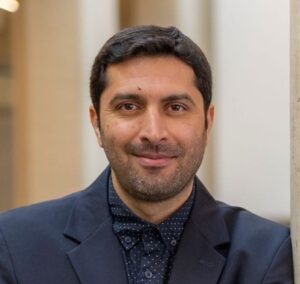
Rasool Akbari
Founder, CEO, and Production Lead
Dr. Rasool Akbari is a Research Fellow at the International Center for Comparative Theology and Social Issues (CTSI), University of Bonn. His research focuses on Islamic Studies, Comparative and Practical Theology, Islamic Religious Education, and Interreligious Learning, with a special interest in the constructive role of religion in contemporary social transformations. As concept originator and production lead of TheologiKI, Rasool seeks to combine theological inquiry and social issues with technological innovation, shaping a platform that bridges scholarly rigor and practical application. He leads the integration of peer-reviewed multilingual research, AI models, and pedagogically robust frameworks to support educators, researchers, and communities in navigating religious diversity. Drawing on his expertise in peace education, interfaith dialogue, and comparative theology, he guides TheologiKI’s vision: to become a trusted, globally accessible academic companion for interreligious engagement — promoting empathy, mutual understanding, and transformative learning in plural societies.
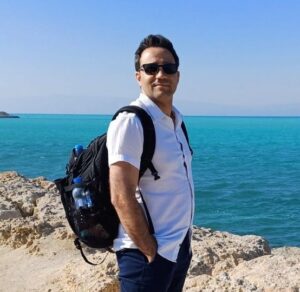
Mohammad Javad Aranian
Technology Development Lead
Mohammad Javad Aranian is a Computer Engineer with an M.Sc. in Artificial Intelligence and a university lecturer. He is the founder and lead developer at Signal Software Group, where he specializes in creating innovative web solutions and integrating AI-driven technologies into practical applications. As Lead for Technology Development at TheologiKI, Mohammad Javad is responsible for architecting and optimizing the platform’s AI infrastructure, ensuring that its chatbot and digital tools deliver accurate, context-aware, and pedagogically valuable responses. His expertise spans AI model customization, natural language processing, multilingual dataset integration, and full-stack web development. With extensive experience as a consultant for business launch and growth strategies, he combines entrepreneurial insight with academic rigor, aligning TheologiKI’s technological innovation with its scholarly mission. Fluent in Persian and proficient in English, Mohammad Javad bridges technology, education, and startup ecosystems, making TheologiKI a technically robust, scalable, and user-centered platform for interreligious learning and academic collaboration.
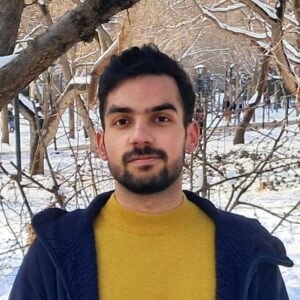
Elyas Najafi
Full Stack Developer
Elyas Najafi is a senior Computer Engineering student and a passionate explorer of programming and the many facets of Artificial Intelligence. As a Full Stack Developer for TheologiKI, he plays a pivotal role in bringing the project’s technical vision to life — from crafting intuitive front-end interfaces to building and optimizing back-end systems, as well as integrating advanced RAG (Retrieval-Augmented Generation) pipelines and LLM-based features. With a strong grasp of both client- and server-side development, Elyas ensures that the platform delivers smooth, responsive, and reliable experiences to its users. His contributions span from designing user-friendly layouts and seamless navigation flows, to architecting scalable APIs, implementing AI-driven features, and fine-tuning database performance. Bridging innovative technology with TheologiKI’s academic and interreligious mission, Elyas empowers educators, researchers, and learners to interact with theological content through an intelligent, high-performing, and future-ready platform.
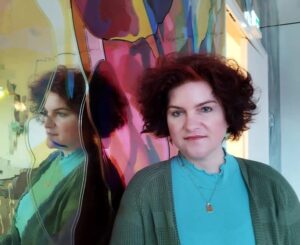
Maike Maria Domsel
Chief Academic and Pedagogical Advisor
PD Dr. Maike Maria Domsel is an adjunct professor at the University of Bonn and a leading scholar in Religious Education and Practical Theology. She studied Catholic Theology and Romance Studies at the University of Bonn (1998–2002), including a formative academic stay in France. Holding a PhD in Systematic Theology from the Philosophical-Theological University of St. Augustin (2019), her doctoral research focused on theological perspectives in end-of-life care. From 2020 to 2021, Dr. Domsel served as substitute professor for Practical Theology and Religious Education at the University of Duisburg-Essen. She recently completed her habilitation in Religious Education at the University of Bonn, advancing research on the spiritual self-concept of educators. In addition to her academic roles, she is co-editor of the Handbook of Religions (HdR). As Academic and Pedagogical Advisor to TheologiKI, Dr. Domsel ensures the platform’s alignment with rigorous educational theory and comparative theological insight, shaping its pedagogical frameworks and guiding the integration of scholarly research into user-centered learning tools. Her expertise strengthens TheologiKI’s mission to foster inclusive, dialogical, and transformative interreligious engagement.
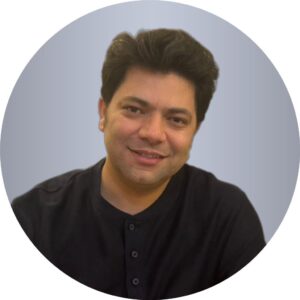
Hassan Akhavanpour
Applied Machine Learning Consultant
Hassan Akhavanpour has experience in machine learning, natural language processing, and large language models. With a BSc education background in Systems Communications (Tehran, Iran) and MSc in Data Analytics from Berlin School of Business and Innovation (Germany), he focuses on designing and refining algorithms, developing tailored LLM solutions, and integrating advanced AI techniques into TheologiKI’s platform. His work connects model development with research-driven goals, ensuring outputs that meet scholarly needs while enabling innovative applications. Living in Berlin, Germany since 2022, Hassan applies his skills with a collaborative mindset to support TheologiKI’s mission of advancing theological and interdisciplinary studies through AI.
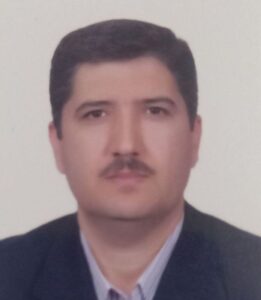
Mahdi Hasanzadeh
Academic Content Consultant
Dr. Mahdi Hasanzadeh is an Associate Professor of Comparative Religion and Mysticism at Ferdowsi University of Mashhad, where he has served as Head of the Department for nearly a decade, and is currently Vice-Dean for Education at the Faculty of Theology and Islamic Studies. His teaching and research focus on primitive religions, pre-Islamic Iranian religions, sociology of religion with a focus on Peter L. Berger, and methodologies in the study of religion. Mahdi has authored and translated numerous scholarly works in these areas, contributing to both Persian and international academic discourse. As Academic Content Consultant for TheologiKI, he ensures the platform’s resources meet the highest scholarly standards, particularly in comparative methodology and the historical study of religions, guiding content curation and peer review.
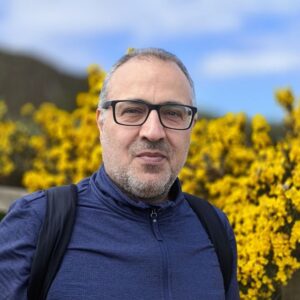
Abbas Sharifitabar
Senior Software Consultant
Abbas Sharifitabar is a Senior Software Engineer at DeliveryHero with over 18 years of experience in designing, architecting, and supporting enterprise applications across diverse business domains — including education, healthcare, banking, and telecommunications. As Senior Software Consultant to TheologiKI, Abbas advises on enterprise-level architecture, system design, and scalability, ensuring that the platform’s infrastructure can support robust AI integrations and a growing global user base. His expertise in Java programming, big data solutions, and complex system architecture strengthens TheologiKI’s technical foundation, enabling secure, high-performance delivery of scholarly and educational resources. By bringing deep industry experience to the project, Abbas bridges the gap between enterprise-grade engineering and TheologiKI’s academic mission, ensuring that the platform remains technically sound, adaptable, and future-ready.
